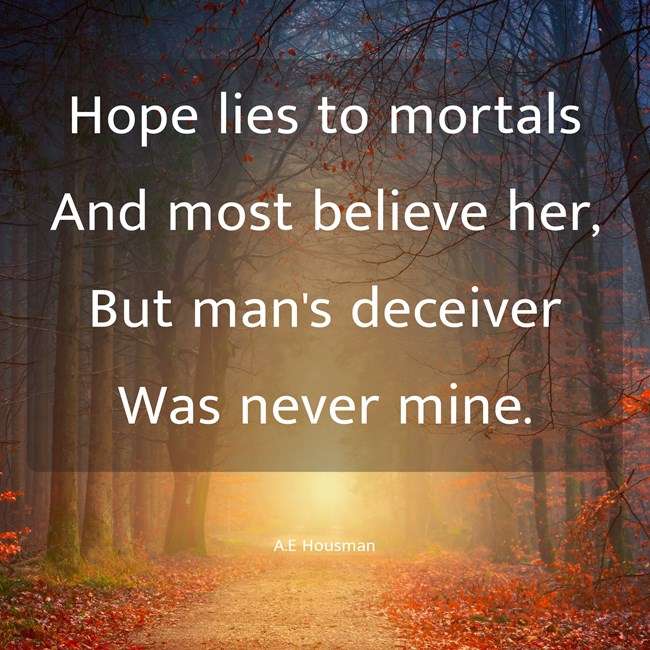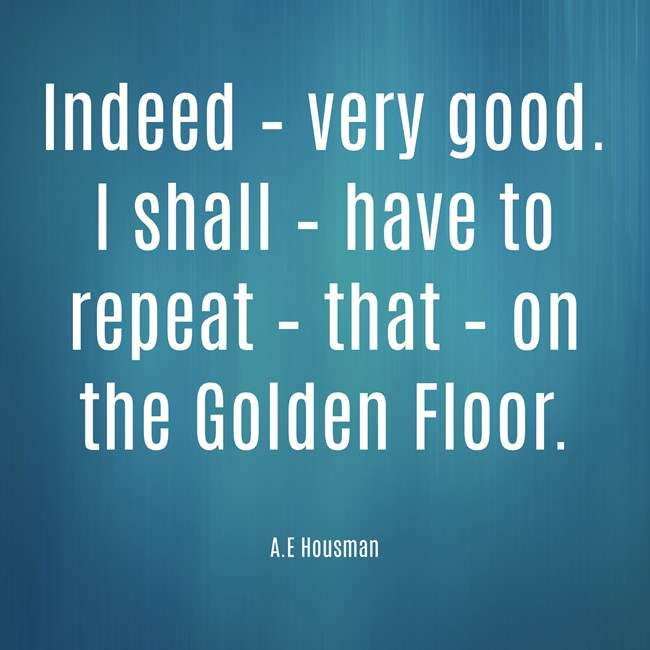A. E. Housman
- Country : United Kingdom
- Profession :poetry
- DOB: 1825-03-26
A. E. Housman (1859–1936), a renowned English poet and classicist, displayed an enigmatic attitude towards biography. His private nature and reluctance to engage with biographers left his personal life shrouded in mystery. Housman’s poems, particularly those in “A Shropshire Lad,” reflect themes of fleeting youth, unrequited love, and the inevitability of death. While biographical details may enhance understanding, Housman’s literary legacy largely stands on the emotional resonance and timeless themes embedded in his poetry, inviting readers to explore the profound depths of human experience rather than the intricacies of his own life.
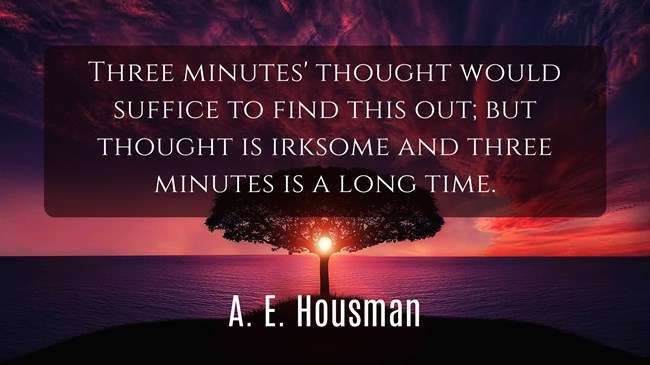
Three minutes’ thought would suffice to find this out; but thought is irksome and three minutes is a long time.
Author: A. E. Housman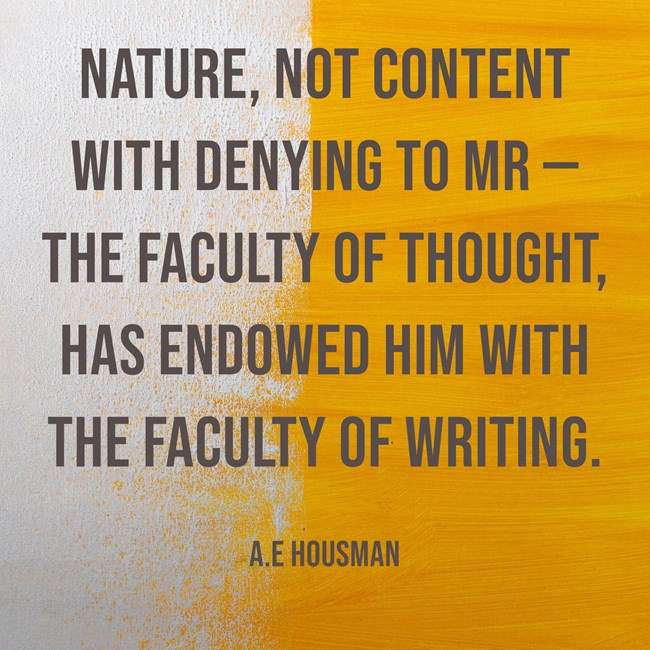
Nature, not content with denying to Mr — the faculty of thought, has endowed him with the faculty of writing.
Author: A. E. HousmanSome men are more interesting than their books but my book is more interesting than its man.
Author: A. E. Housman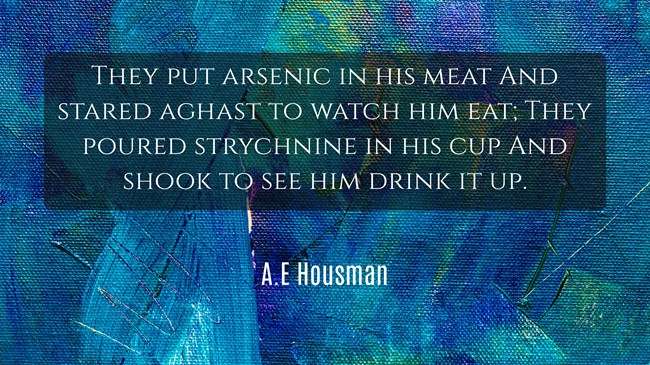
They put arsenic in his meat And stared aghast to watch him eat; They poured strychnine in his cup And shook to see him drink it up.
Author: A. E. HousmanIt is supposed that there has been progress in the science of textual criticism, and the most frivolous pretender has learned to talk superciliously about “the old unscientific days”. The old unscientific days are everlasting; they are here and now; they are renewed perennially by the ear which takes formulas in, and the tongue which gives them out again, and the mind which meanwhile is empty of reflexion and stuffed with self-complacency.
Author: A. E. Housman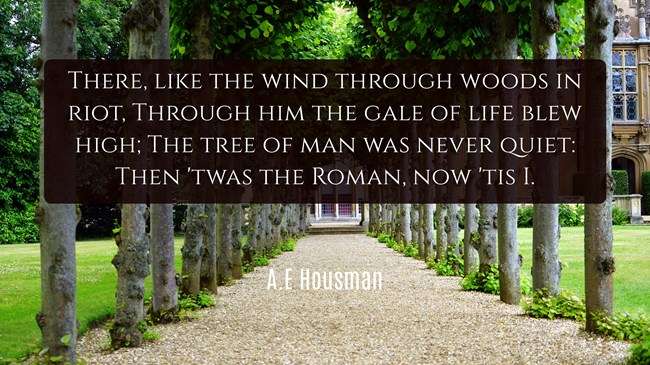
There, like the wind through woods in riot,
Through him the gale of life blew high;
The tree of man was never quiet:
Then ’twas the Roman, now ’tis I.
The chestnut casts his flambeaux, and the flowers
Stream from the hawthorn on the wind away,
The doors clap to, the pane is blind with showers.
Pass me the can, lad; there’s an end of May.
The rainy Pleiads wester,
Orion plunges prone,
The stroke of midnight ceases,
And I lie down alone.
The laws of God, the laws of man,
He may keep that will and can;
Now I: let God and man decree
Laws for themselves and not for me.
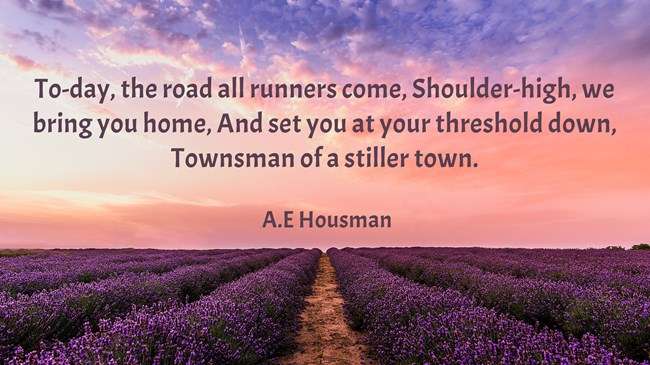
To-day, the road all runners come,
Shoulder-high, we bring you home,
And set you at your threshold down,
Townsman of a stiller town.
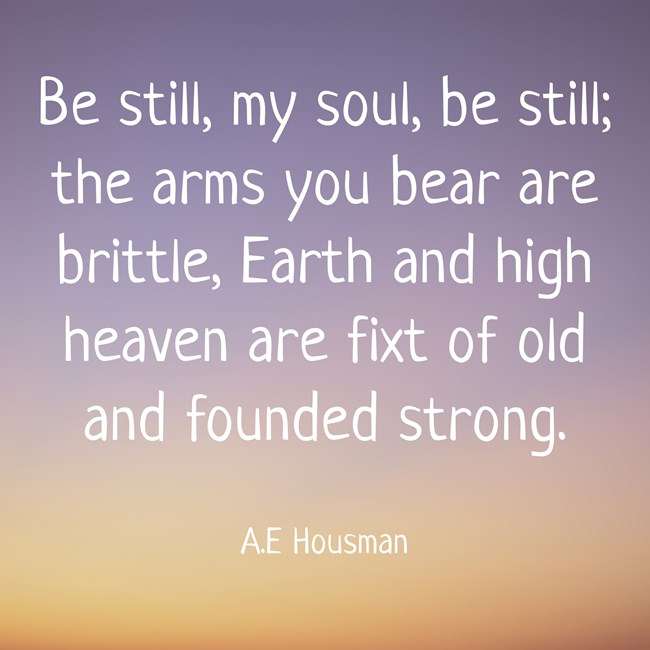
Be still, my soul, be still; the arms you bear are brittle,
Earth and high heaven are fixt of old and founded strong.
The average man, if he meddles with criticism at all, is a conservative critic. His opinions are determined not by his reason — ‘the bulk of mankind’ says Swift ‘is as well qualified for flying as for thinking’ — but by his passions; and the faintest of all human passions is the love of truth. He believes that the text of ancient authors is generally sound, not because he has acquainted himself with the elements of the problem, but because he would feel uncomfortable if he did not believe it; just as he believes, on the same cogent evidence, that he is a fine fellow, and that he will rise again from the dead.
Author: A. E. HousmanMy heart always warms to people who do not come to see me, especially Americans, to whom it seems to be more of an effort.
Author: A. E. HousmanOh tarnish late on Wenlock Edge,
Gold that I never see;
Lie long, high snowdrifts in the hedge
That will not shower on me.
Say, for what were hop-yards meant,
Or why was Burton built on Trent?
Oh many a peer of England brews
Livelier liquor than the Muse,
And malt does more than Milton can
To justify God’s ways to man.
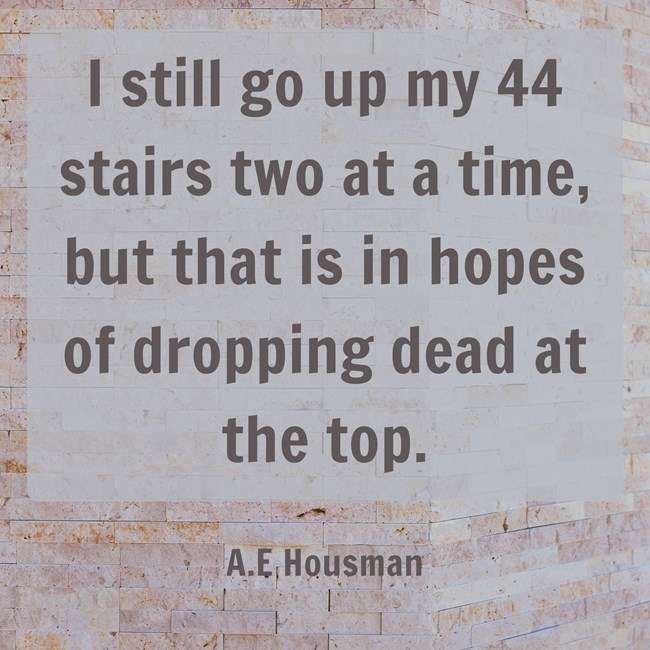
I still go up my 44 stairs two at a time, but that is in hopes of dropping dead at the top.
Author: A. E. HousmanFrom far, from eve and morning
And yon twelve-winded sky,
The stuff of life to knit me
Blew hither; here am I.
Why, if ’tis dancing you would be, There’s brisker pipes than poetry. Say, for what were hop-yards meant, Or why was Burton built on Trent? Oh many a peer of England brews Livelier liquor than the Muse, And malt does more than Milton can To justify God’s ways to man. Ale, man, ale’s the stuff to drink For fellows whom it hurts to think: Look into the pewter pot To see the world as the world’s not.
Author: A. E. Housman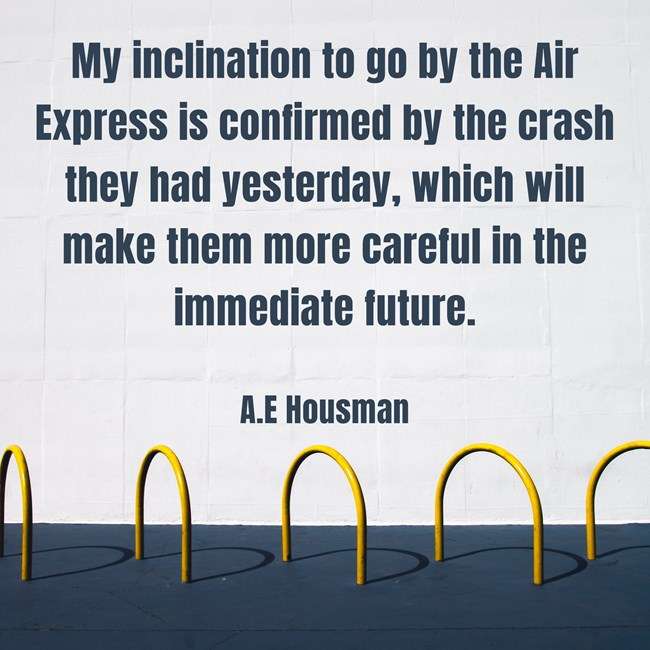
My inclination to go by the Air Express is confirmed by the crash they had yesterday, which will make them more careful in the immediate future.
Author: A. E. HousmanGive me a land of boughs in leaf A land of trees that stand; Where trees are fallen there is grief; I love no leafless land.
Author: A. E. HousmanIn every American there is an air of incorrigible innocence, which seems to conceal a diabolical cunning.
Author: A. E. HousmanOh who is that young sinner with the handcuffs on his wrists?
And what has he been after that they groan and shake their fists?
And wherefore is he wearing such a conscience-stricken air?
Oh they’re taking him to prison for the colour of his hair.
He would not stay for me, and who can wonder?
He would not stay for me to stand and gaze.
I shook his hand, and tore my heart in sunder,
And went with half my life about my ways.
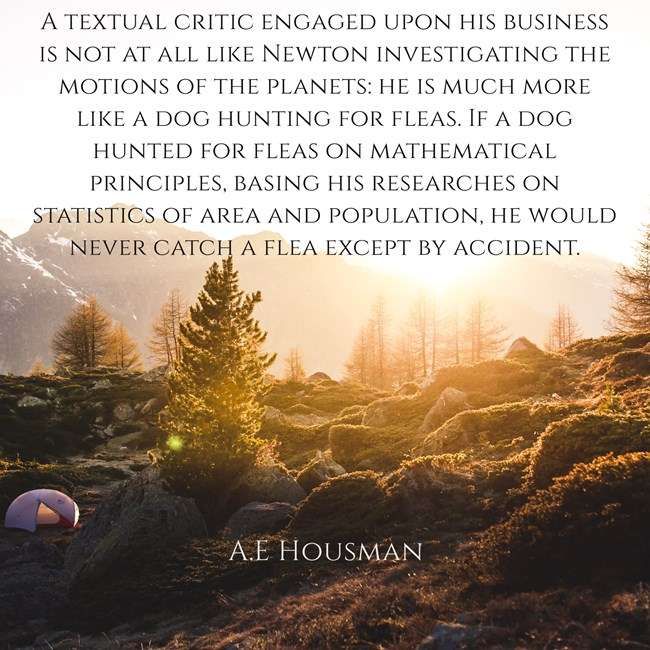
A textual critic engaged upon his business is not at all like Newton investigating the motions of the planets: he is much more like a dog hunting for fleas. If a dog hunted for fleas on mathematical principles, basing his researches on statistics of area and population, he would never catch a flea except by accident.
Author: A. E. HousmanWe now to peace and darkness
And earth and thee restore
Thy creature that thou madest
And wilt cast forth no more.
Stone, steel, dominions pass, Faith too, no wonder; So leave alone the grass That I am under.
Author: A. E. Housman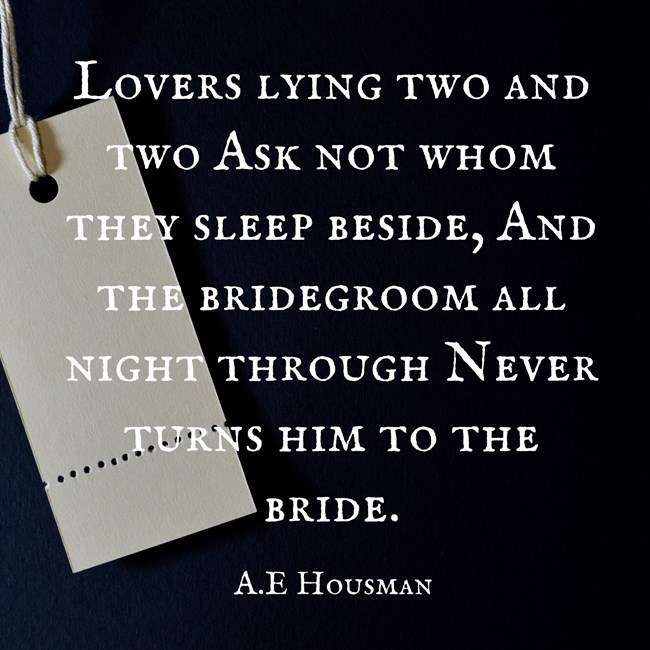
Lovers lying two and two
Ask not whom they sleep beside,
And the bridegroom all night through
Never turns him to the bride.
The candles burn their sockets,
The blinds let through the day,
The young man feels his pockets
And wonders what’s to pay.
They carry back bright to the coiner the mintage of man,
The lads that will die in their glory and never be old.
Far in a western brookland
That bred me long ago
The poplars stand and tremble
By pools I used to know.
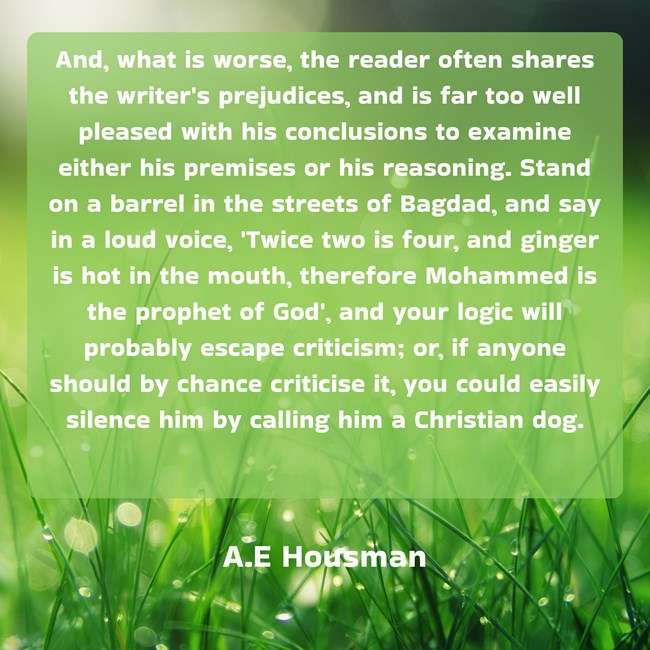
And, what is worse, the reader often shares the writer’s prejudices, and is far too well pleased with his conclusions to examine either his premises or his reasoning. Stand on a barrel in the streets of Bagdad, and say in a loud voice, ‘Twice two is four, and ginger is hot in the mouth, therefore Mohammed is the prophet of God’, and your logic will probably escape criticism; or, if anyone should by chance criticise it, you could easily silence him by calling him a Christian dog.
Author: A. E. HousmanAnd naked to the hangman’s noose
The morning clocks will ring
A neck God made for other use
Than strangling in a string.
All knots that lovers tie Are tied to sever. Here shall your sweetheart lie, Untrue for ever.
Author: A. E. Housman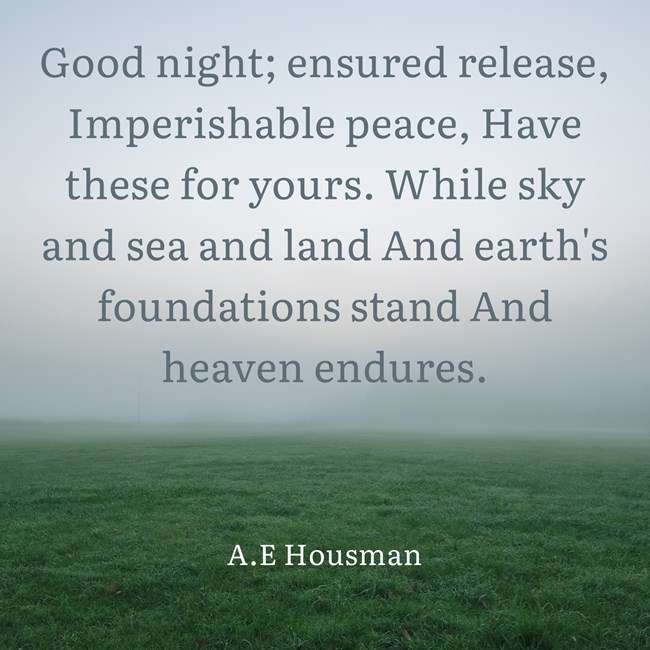
Good night; ensured release,
Imperishable peace,
Have these for yours. While sky and sea and land And earth’s foundations stand And heaven endures.
To be a textual critic requires aptitude for thinking and willingness to think; and though it also requires other things, those things are supplements and cannot be substitutes. Knowledge is good, method is good, but one thing beyond all others is necessary; and that is to have a head, not a pumpkin, on your shoulders and brains, not pudding, in your head.
Author: A. E. HousmanClay lies still, but blood’s a rover;
Breath’s a ware that will not keep.
Up, lad: when the journey’s over
There’ll be time enough to sleep.
Oh I have been to Ludlow fair, and left my necktie God knows where. And carried half way home, or near, pints and quarts of Ludlow beer.
Author: A. E. HousmanThe Grizzly Bear is huge and wild;
He has devoured the infant child.
The infant child is not aware
He has been eaten by the bear.
The house of delusions is cheap to build, but draughty to live in, and ready at any instant to fall.
Author: A. E. HousmanWhen summer’s end is nighing
And skies at evening cloud,
I muse on change and fortune
And all the feats I vowed
When I was young and proud.
You must not treat my immortal works as quarries to be used at will by the various hacks whom you may employ to compile anthologies.
Author: A. E. HousmanI think that to transfuse emotion – not to transmit thought but to set up in the reader’s sense a vibration corresponding to what was felt by the writer – is the peculiar function of poetry.
Author: A. E. HousmanLook not in my eyes, for fear
They mirror true the sight I see,
And there you find your face too clear
And love it and be lost like me.
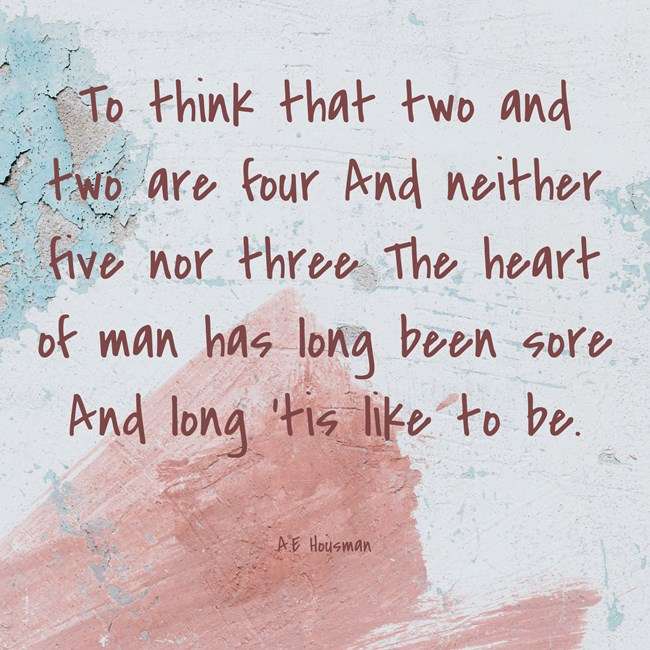
To think that two and two are four And neither five nor three The heart of man has long been sore And long ’tis like to be.
Author: A. E. HousmanWe for a certainty are not the first
Have sat in taverns while the tempest hurled
Their hopeful plans to emptiness, and cursed
Whatever brute and blackguard made the world.
The chestnut casts his flambeaux, and the flowers
Stream from the hawthorn on the wind away,
The doors clap to, the pane is blind with showers.
Pass me the can, lad; there’s an end of May.
Who made the world I cannot tell;
‘Tis made, and here am I in hell.
My hand, though now my knuckles bleed,
I never soiled with such a deed.
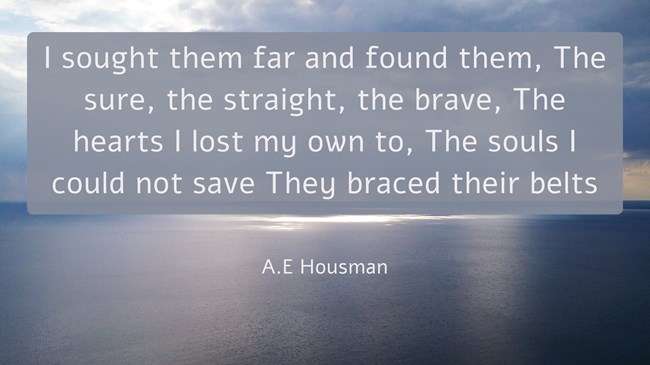
I sought them far and found them, The sure, the straight, the brave, The hearts I lost my own to, The souls I could not save They braced their belts about them, They crossed in ships the sea, They sought and found six feet of ground, And there they died for me.
Author: A. E. HousmanPoems very seldom consist of poetry and nothing else; and pleasure can be derived also from their other ingredients. I am convinced that most readers, when they think they are admiring poetry, are deceived by inability to analyse their sensations, and that they are really admiring, not the poetry of the passage before them, but something else in it, which they like better than poetry.
Author: A. E. HousmanCambridge has seen many strange sights. It has seen Wordsworth drunk and Porson sober. It is now destined to see a better scholar than Wordsworth and a better poet than Porson betwixt and between.
Author: A. E. HousmanInto my heart an air that kills
From yon far country blows:
What are those blue remembered hills,
What spires, what farms are those?
That is the land of lost content,
I see it shining plain,
The happy highways where I went
And cannot come again.
There, by the starlit fences,
The wanderer halts and hears
My soul that lingers sighing
About the glimmering weirs.
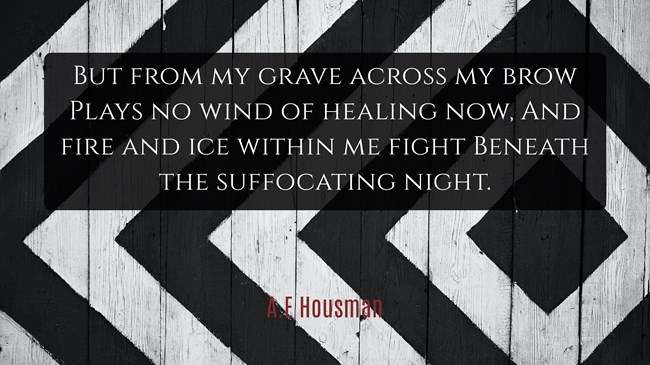
But from my grave across my brow
Plays no wind of healing now,
And fire and ice within me fight
Beneath the suffocating night.
On Wenlock Edge the wood’s in trouble;
His forest fleece the Wrekin heaves;
The gale, it plies the saplings double,
And thick on Severn snow the leaves.
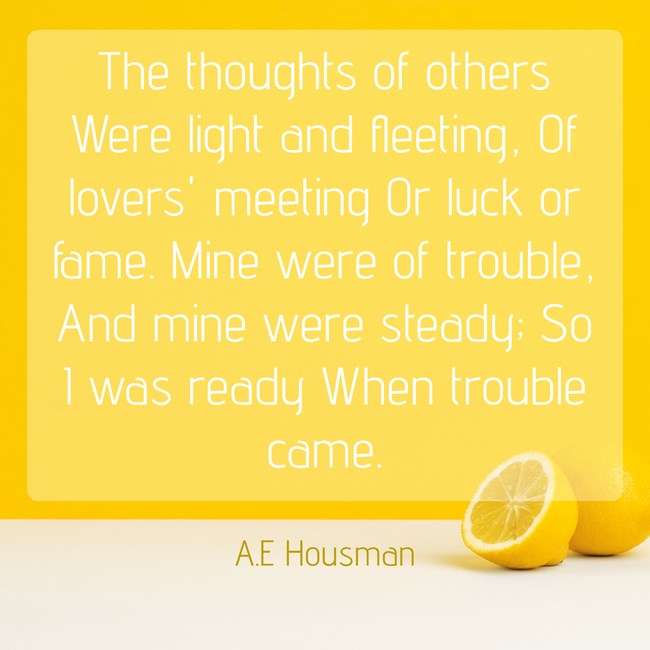
The thoughts of others Were light and fleeting, Of lovers’ meeting Or luck or fame. Mine were of trouble, And mine were steady; So I was ready When trouble came.
Author: A. E. HousmanThese, in the day when heaven was falling,
The hour when earth’s foundations fled,
Followed their mercenary calling
And took their wages and are dead.
Their shoulders held the sky suspended;
They stood, and earth’s foundations stay;
What God abandoned, these defended,
And saved the sum of things for pay.
Tell me not here, it needs not saying,
What tune the enchantress plays
In aftermaths of soft September
Or under blanching mays,
For she and I were long acquainted
And I knew all her ways.
To be a textual critic requires aptitude for thinking and willingness to think; and though it also requires other things, those things are supplements and cannot be substitutes. Knowledge is good, method is good, but one thing beyond all others is necessary; and that is to have a head, not a pumpkin, on your shoulders and brains, not pudding, in your head.
Author: A. E. Housman